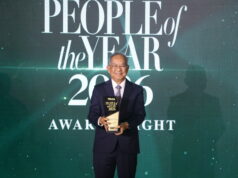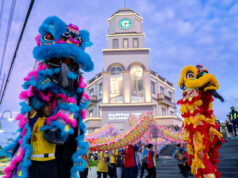Leading the forum on “Pursuing Federalism” at the Laus Group Event Center here was Atty. Raul Lambino who spoke on the “Features of a Parliamentary System.”
Lambino, acting secretary-general of the Lakas-Christian Muslim Democrats and member of the Philippine Constitution Association (Philconsa), said “this is our focus because we believe that it is easier to change to Federalism.”
“We are going to explain here how to pursue Federalism so that people will understand what are the processes and what is the framework,” he said.
“We will also discuss what are the possible vehicles in order to pursue Federalism,” he added.
Lambino explained that the French model is a parliamentary form of government.
“When you talk of Federalism, it is the system of government which is a vertical relationship between the national government and the other component tiers of government down below – regional government or state government and then provincial, city, municipality – that is the federal system,” Lambino said.
“When you talk of the French system, we are referring to a semi-presidential form of government which has something to do with the relationship of the political departments meaning to say the executive and the legislative bodies,” he explained.
“What the President wants is we take a look at the French system whereby some of the powers of the executive will be exercised by the parliament, meaning to say congress,” he said.
“Here in the Philippines, without necessarily giving everything to the parliament, let’s leave the other powers to the President like military powers, the foreign relations powers, maybe clemency powers and some appointing powers. That’s the French system which is a modifi cation of the British system,” Lambino explained further.
He corrected the misconception that the French system has a unitary parliamentary system.
Lambino said the French system is also composed of two houses. “They have the senate and they also have their national assembly,” he said.
“The French system has about 350 senators and almost 600 members of the national assembly,” he added.
“So we really have to explain this to the people,” he stressed.
Lambino explained that we need to shift in the form of government fi rst from the present presidential form with bicameral legislature into a possible French model of parliament or French model of government.
Explaining the vital pre-conditions to a future Federal-Parliamentary Government was Lito Monico C. Lorenzana, president of Centrist Democracy Political Institute (CDPI), chairman of the Centrist Democratic Party of the Philippines, and secretary-general of the Consultative Commission 2005.
The Features on Economic Liberalization was also tackled by Lorenzana to a mix of businessmen, local offi cials, teachers and students, members of the media and the curious from all over the region in the LGC Event Center.
The issue on how Federalism vis-à-vis political party institutionalization will help in the fight against corruption and help strengthen institutions was also discussed.
Levy P. Laus, chairman emeritus of the Pampanga Chamber of Commerce and Industry, Inc. (PamCham) gave the welcome remarks where he said he was also part of the Consultative Commission in 2005 which was formed by former President Gloria Arroyo.
He said at that time they worked on the particular aspect of the Constitution which needs to be amended which is the form of government and the economic provisions among others.
Laus said “it is about that that there should be decentralization because we have this saying as early as then that there is this imperial Metro Manila. Why imperial Metro Manila? Because there is so much centering of power there just like the budget which is focus on Metro Manila.”
Laus said he always believed in “countryside development like most people because I believe there is so much to be done in the countryside.




